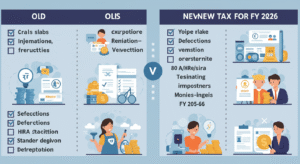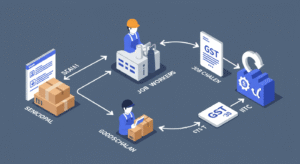The digital transformation sweeping across industries has fundamentally changed how financial audits are conducted. Gone are the days of purely paper-based trails; today, auditors navigate vast landscapes of digital data, client systems, and cloud platforms. While this shift brings efficiency, it also introduces significant cybersecurity risks financial audits must address. For auditors, IT auditors, and finance professionals, understanding and mitigating these risks is no longer optional – it's essential for maintaining audit integrity, client trust, and regulatory compliance.
This article discusses the growing importance of cybersecurity awareness in financial audits. We'll delve into the specific threats auditors face, outline key responsibilities, and provide practical guidance to enhance audit data security. Staying informed is the first step towards protecting sensitive information in today's increasingly connected audit environment.
Why Cybersecurity is a Critical Concern in Modern Auditing
The reliance on digital systems and data storage has exponentially increased the attack surface for malicious actors. Financial audits, by their very nature, handle highly sensitive and confidential information, making audit firms and their clients prime targets. Consider these factors:
- Sensitivity of Data: Audit workpapers contain non-public financial data, strategic plans, personal identifiable information (PII) of employees and customers, and intellectual property. A breach can lead to catastrophic financial loss, reputational damage, and legal liabilities for both the client and the audit firm.
- Interconnected Systems: Auditors often connect to client networks, use cloud-based audit software, and exchange vast amounts of data electronically. Each connection point represents a potential vulnerability if not properly secured.
- Regulatory Scrutiny: Data protection regulations (like the Digital Personal Data Protection Act in India and GDPR internationally) impose strict requirements for handling sensitive data. Non-compliance can result in hefty penalties.
- Reputational Risk: An audit firm's reputation is built on trust and confidentiality. A cybersecurity incident can irreparably damage this trust, leading to client loss and difficulty attracting new business.
- Operational Disruption: Attacks like ransomware can encrypt critical audit files or systems, grinding the audit process to a halt, causing delays, and potentially compromising the audit's quality.
Ignoring cybersecurity is akin to leaving the vault door open. It's a fundamental aspect of professional responsibility in the digital age.
Key Cybersecurity Risks Financial Audits Face
Auditors need to be aware of the specific threats lurking in the digital environment. While not expected to be cybersecurity experts, understanding these common risks is crucial for effective prevention and detection:
Data Breaches and Unauthorized Access
This involves attackers gaining unauthorized entry into systems or databases containing sensitive audit or client information.
- Methods: Phishing emails tricking users into revealing credentials, exploiting software vulnerabilities, brute-force attacks on weak passwords.
- Impact: Theft of financial data, PII, trade secrets; non-compliance with data privacy laws.
Ransomware Attacks
Malware encrypts files or entire systems, rendering them inaccessible until a ransom is paid.
- Methods: Often delivered via malicious email attachments, infected websites, or compromised software updates.
- Impact: Significant operational disruption, potential data loss (even if ransom is paid), high recovery costs, damage to audit timelines.
Malware and Spyware Infections
Malicious software designed to damage systems, steal information, or provide attackers remote control.
- Methods: Downloads from untrusted sources, infected USB drives, drive-by downloads from compromised websites.
- Impact: Compromised audit software integrity, theft of login credentials, monitoring of confidential communications.
Insider Threats
Risks originating from within the organization – either malicious or accidental.
- Types: Disgruntled employees intentionally leaking data, careless employees mishandling data (e.g., emailing sensitive files unencrypted), falling victim to social engineering.
- Impact: Data leakage, system sabotage, reputational damage.
Third-Party and Supply Chain Risks
Vulnerabilities introduced through external vendors, including cloud service providers or developers of audit software.
- Concerns: Weak security practices by a vendor could expose auditor or client data stored or processed by them.
- Impact: Data breaches originating outside the firm's direct control but still affecting the audit.
Insecure Data Handling and Transmission
Weak practices in managing data throughout its lifecycle.
- Examples: Using unencrypted laptops or USB drives, sending sensitive files via unsecured email, accessing confidential data over public Wi-Fi.
- Impact: Accidental data exposure, increased vulnerability to interception.
The Auditor's Evolving Role in Cybersecurity Awareness
While IT auditors specialize in evaluating IT controls, all auditors now have a role to play in cybersecurity awareness. This doesn't mean becoming a penetration tester, but rather incorporating a cybersecurity lens into the audit process:
- Understanding the Client's IT Environment: Auditors need a basic understanding of the client's IT systems, key controls, and data management practices relevant to the financial statements. Assessing how clients handle their own data security is becoming increasingly pertinent. Modern auditing increasingly relies on analyzing large datasets generated by these systems. (For more details on leveraging data, see our guide on Data Analytics in Auditing: Enhancing Efficiency and Accuracy).
- Identifying Red Flags: Be alert to signs that might indicate cybersecurity weaknesses or incidents impacting the financial statements (e.g., unexplained system outages, potential costs associated with a known breach, weak access controls observed during walkthroughs).
- Protecting Audit Evidence: Ensuring the confidentiality, integrity, and availability of audit documentation, whether stored digitally or physically. This includes securing laptops, using strong passwords, and adhering to firm policies on data handling.
- Evaluating Impact on Financial Statements: Considering whether cybersecurity incidents could lead to material misstatements (e.g., unrecorded liabilities from breach recovery costs, impaired asset values due to system damage, going concern issues).
Practical Steps for Auditors: An Auditor Guide to Enhancing Security
Proactive measures are key to mitigating cybersecurity risks financial audits encounter. Here are essential steps every auditor and finance professional involved in the audit process should consider:
1. Prioritize Security Awareness Training
- Regular Training: Participate in mandatory and ongoing training on phishing, social engineering tactics, password security, and secure data handling practices.
- Stay Updated: Be aware of common and emerging cyber threats relevant to the financial sector.
2. Implement Strong Authentication and Access Controls
- Strong, Unique Passwords: Use complex passwords for all accounts and avoid reusing them. Consider a password manager.
- Multi-Factor Authentication (MFA): Enable MFA wherever available (email, audit software, cloud storage). This adds a critical layer of security beyond just a password.
- Principle of Least Privilege: Ensure access rights to systems and data are limited to only what is necessary for the job function.
3. Secure Data Handling Practices
- Encryption: Encrypt sensitive data both at rest (on hard drives, USBs) and in transit (when emailing or transferring files). Use firm-approved secure file transfer methods instead of standard email for highly sensitive documents.
- Device Security: Secure laptops with strong passwords/biometrics, enable disk encryption (like BitLocker or FileVault), and install reputable anti-malware software. Keep operating systems and applications updated.
- Avoid Public Wi-Fi: Refrain from accessing sensitive client or audit data while connected to unsecured public Wi-Fi networks. Use a VPN if remote access is necessary.
- Data Minimization: Only collect and retain data that is essential for the audit engagement. Securely dispose of data when no longer needed, following firm and regulatory guidelines.
4. Secure Client Collaboration
- Secure Portals: Utilize secure client portals provided by the firm for exchanging documents rather than relying solely on email.
- Verify Requests: Be cautious of urgent requests for sensitive information via email or phone. Verify the requestor's identity through a separate communication channel if suspicious.
5. Be Prepared for Incidents
- Know the Protocol: Understand your firm's incident response plan. Know who to contact immediately if you suspect a security breach or malware infection.
- Report Suspicious Activity: Promptly report any suspicious emails, unusual system behavior, or potential security weaknesses observed.
Conclusion: Cybersecurity as a Core Audit Competency
The landscape of financial auditing is intrinsically linked with technology, making cybersecurity awareness a non-negotiable skill for today's auditors and finance professionals. Understanding the key cybersecurity risks financial audits face, from data breaches to ransomware, is the first step. Implementing robust audit data security practices, including strong authentication, encryption, secure data handling, and continuous learning, is crucial for protecting sensitive information.
By embracing cybersecurity as a core competency, auditors not only safeguard client data and comply with regulations but also uphold the integrity and trustworthiness that are fundamental to the auditing profession. Proactive vigilance is the best defence in an evolving digital world.
Disclaimer: The information provided in this article is for general informational purposes only and does not constitute professional tax advice. Tax laws are subject to change. Please consult with a qualified tax advisor for advice tailored to your specific situation.
Stay ahead of the curve on critical auditing and tax updates! Subscribe to the InsightsOnTax newsletter for expert analysis, practical guides, and timely information delivered straight to your inbox. Sign up today!



